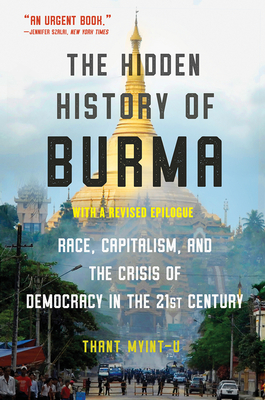Expedite your nonfiction book discovery process with Readara interviews, summaries and recommendations, Broaden your knowledge and gain insights from leading experts and scholars
In-depth, hour-long interviews with notable nonfiction authors, Gain new perspectives and ideas from the writer’s expertise and research, Valuable resource for readers and researchers
Optimize your book discovery process, Four-to eight-page summaries prepared by subject matter experts, Quickly review the book’s central messages and range of content
Books are handpicked covering a wide range of important categories and topics, Selected authors are subject experts, field professionals, or distinguished academics
Our editorial team includes books offering insights, unique views and researched-narratives in categories, Trade shows and book fairs, Book signings and in person author talks,Webinars and online events
Connect with editors and designers,Discover PR & marketing services providers, Source printers and related service providers

The Hidden History of Burma: Race, Capitalism, and the Crisis of Democracy in the 21st Century
Political Science > World - Asian
- W. W. Norton & Company
- Paperback
- 9780393541434
- 8.2 X 5.4 X 0.9 inches
- 0.55 pounds
- Political Science > World - Asian
- (Single Author) Asian American
- English
Readara.com
Book Description
During a century of colonialism, Burma was plundered for its natural resources and remade as a racial hierarchy. Over decades of dictatorship, it suffered civil war, repression, and deep poverty. Today, Burma faces a mountain of challenges: crony capitalism, exploding inequality, rising ethnonationalism, extreme racial violence, climate change, multibillion dollar criminal networks, and the power of China next door. Thant Myint-U shows how the country's past shapes its recent and almost unbelievable attempt to create a new democracy in the heart of Asia, and helps to answer the big questions: Can this multicultural country of 55 million succeed? And what does Burma's story really tell us about the most critical issues of our time?
Author Bio
Thant Myint-U was born 31 January 1966 in New York City and was educated at Harvard (AB '87 in Government and Economics), the Johns Hopkins School of Advanced International Studies (MA '91 in International Relations and International Economics) and Cambridge University (PhD '96 in History).
He has served on three United Nations peacekeeping operations, in Cambodia (United Nations Transition Authority in Cambodia 1992-3) and in the former Yugoslavia (United Nations Protection Force 1994-5 and United Nations Mission in Bosnia-Herzegovina 1996), including as the UN's spokesman in Sarajevo during the Bosnian War.
From 1996-1999 he taught Asian and British imperial history as a Fellow of Trinity College, Cambridge. He was also a Research Associate of the Cambridge Centre for History and Economics.
From 2000-2007 Thant Myint-U worked at the UN Secretariat in New York. He worked first for the Office for the Coordination of Humanitarian Affairs and then in Department of Political Affairs and the Executive Office of the Secretary-General. From 2004-6 he was the Chief of the Policy Planning Unit in the Department of Political Affairs. He was also the Senior Officer attached to the Secretary-General's High-Level Panel on Threats, Challenges, and Change, formed in the aftermath of the Iraq War, whose recommendations on issues from counter-terrorism to nuclear non-proliferation, to mediation and peacekeeping, led to the 2005 World Summit.
From 2007-2011 Thant Myint-U held visiting fellowships at Harvard, the International Peace Institute in New York, and the Institute for Southeast Asian Studies in Singapore.
During this time he was also deeply involved in efforts related to reform in Burma (Myanmar), working with international organizations, non-governmental organizations, and others, in particular on issues related to humanitarian access in the aftermath of Cyclone Nargis and the transition from military dictatorship. From 2009 he served on the board of the Myanmar Livelihoods and Food Security Trust Fund.
In 2012 Thant Myint-U was appointed a member of the President of Myanmar's National Economic and Social Advisory Council and a special advisor at the Myanmar Peace Center, the body responsible for the 2011-2015 peace process and the 2015 Nationwide Ceasefire Agreement. He was also a senior advisor to the Beyond Ceasefires Initiative, a joint programme between the government and Ethnic Armed Organizations designed to bring external experiences in support of domestic peace negotiations. During this time he also established the Yangon Heritage Trust to protect the city's architectural heritage and encourage new ideas in urban planning.
Thant Myint-U is the author of four books: The Making of Modern Burma (2000), the River of Lost Footsteps: A Personal History of Burma (2006), Where China Meets India: Burma and the New Crossroads of Asia (2011 and short-listed for the Asia Society's Bernard Schwartz Prize), and The Hidden History of Burma: Race, Capitalism, and the Crisis of Democracy in the 21st Century (2019).
He has also written several book chapters and monographs, as well as articles for the New York Times, the Financial Times, the London Review of Books, the Nikkei Asian Review, and many other publications.
In December 2013 Thant Myint-U was named by Foreign Policy magazine as one of the "100 Leading Global Thinkers" for the year, and in April 2014 was voted 15th in an online poll from Prospect Magazine's list of 50 "World Thinkers". In September 2015 he was selected for the Fukuoka "Grand Prize", Japan's leading cultural award.
In December that year he received the President of Myanmar's award for Outstanding National Service. In January 2018 he received the Padma Shri award, one of India's highest civilian honours, from the Government of India.
Thant Myint-U is currently the Chairman of U Thant House, a leading education and discussion centre in Yangon, Founder and Chairman of the Yangon Heritage Trust, and a Founding Partner of the Ava Advisory Group. He is also an Affiliated Scholar of the Centre for South Asian Studies at Cambridge University. He lives in Yangon.
Source: thantmyintu.com
Videos






Community reviews
No Community reviews

